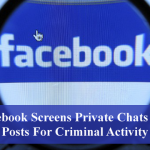 Los Angeles — In order to give concerned marketers peace of mind and legally protect brands that advertise products meant for audlts, popular micro-blogging outfit Twitter in association with Buddy Media has unleashed a new tool for screening younger social media users, a particularly significant concern for alcohol brands.
Los Angeles — In order to give concerned marketers peace of mind and legally protect brands that advertise products meant for audlts, popular micro-blogging outfit Twitter in association with Buddy Media has unleashed a new tool for screening younger social media users, a particularly significant concern for alcohol brands.
As social media has evolved greatly during the last decade or so, no one has quite figured out how to completely safeguard and restrict younger demographics from accessing adult content on social networks. In addition, many booze brands have simply attached a note on their account profile stating that followers must be of legal drinking age and to “Drink responsibly.”
The main objective of this initiative is to reduce the liability of booze marketers and their ilk, though the process itself appears to be fairly porous. Thus, Twitter is making another attempt with help from Buddy Media through a new scheme dubbed ‘age-screening’. The concept is actually quite simple. Through the Twitter and Buddy Media solution, marketers for adult brands can screen for followers based on their age and block them if they do not meet the minimum age criteria.
“Many brands have asked for a way to screen the age of their followers on Twitter,” Buddy Media CEO Michael Lazerow said in a blog entry.
“The Twitter and Buddy Media solution solves a challenge many marketers have faced in confirming their followers are of age to follow their brand,” Lazerow wrote in the company’s blog. “So far, companies have had to develop their own custom, one-off ‘age-screening’ solutions. The result has been a mixture of solutions with different approaches, processes and levels of success.”
For example, the moment a user under the age of twenty-one attempts to follow the “Coors Light Twitter page,” they will receive a direct message through Twitter with a link to an age verification page. Once the user enters the day, month and year of their birthday as well as agree to another privacy policy, they will be able to follow the brand if they are within the specified age limit. After the age is submitted, Twitter will be able to use that for future verification as well. In other words, the user would not be promoted with the same age verification process over and over each time they want to follow an “adult” brand.

Apart from this, if a Twitter user makes a mistake on the entry form and sets the year under the age limit, they would not be able to rectify the mistake instantaneously. According to Twitter, the user is barred from altering their age for an “undisclosed amount of time.” According to Twitter’s head of product marketing Guy Yalif, he stated: “We are trusting users to input their valid birth date. We have no plans to self identify their valid birthdate or cross reference this with third-party data.”

According to Twitter, the firm has worked with social media management firm Buddy Media to come up with a more robust answer to the age-proofing question. Besides, the free feature has so far garnered support from alcohol brands and other industries with age-related content.
More so, Buddy commenced offering the free service to adult brands such as liquor companies, but said it could be used for other industries with age requirements. Brown-Forman’s Jack Daniels, Jim Beam’s Skinny Girl, and MillerCoors’ Coors Light and Miller Lite have served as the beta-testing group. Though now that the program is public, any advertiser can slap the restrictions onto their Twitter account.

Apart from alcohol companies, some other business types such as gambling organizations and pharmaceutical companies could also start using the age verification tool to protect themselves legally while increasing their advertising budget on Twitter.
Companies can submit their brand for approval via Twitter’s age page.
Furthermore, in the comments section of the company’s blog post Joe Ciarallo, VP of communications for Buddy Media, also notes that the process works globally and brands can adopt the appropriate age for each country.
On the other hand, social media outfit Facebook is more stringent with underage users as the site requires an age to be entered when setting up a profile. This allows Facebook to filter advertisements of adult products from begin displayed to minors. In addition, Facebook page admins can set an age restriction. Specific to alcohol companies, page admins can categorize the page as “alcohol-related” in order to weed out users according to the drinking age limits in each country. For instance, if a person over twenty-one was a fan of Heineken on Facebook, friends of that person that are under the drinking age would not be able to see that relationship.


